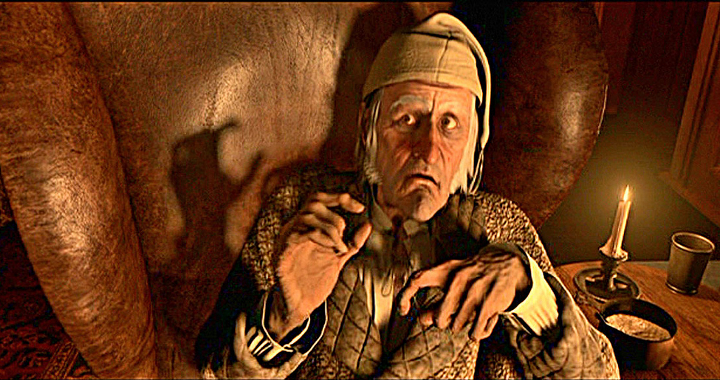As the holiday season becomes more distant, reflecting on the value of a particular Christmas trope is no less valuable. If Christmas is the season of selflessness, then surely one of the great symbols of Christmas is Ebenezer Scrooge. Contrary to common belief, however, he should be known for his original characteristics, not his reformed self. It’s our interpretation of Charles Dickens’ classic, not misers like Scrooge that needs to change. Prior to his encounters with three ghosts, the iconic Dicken’s character seems to have had no redeeming virtues. Indeed, Ebenezer Scrooge is one of literature’s best known misanthropes, who many would consider a miserly, sociopathic bully. Conventional wisdom has come to view A Christmas Carol as a story of redemption in which the irredeemably cruel Scrooge makes amends on Christmas Day; however, one could argue that this characterization is highly questionable. Despite being outwardly unsympathetic, Scrooge, inadvertently, would have been an important public benefactor.
If he chose to save his money conventionally—say, through a bank—Scrooge would have added to the supply of funds available to be loaned out and helped push down the interest rate that borrowers pay. Suddenly, at this new lower interest rate, someone may have finally been able to purchase that house they had longed for. Credit may have become affordable for an entrepreneur or a student may have been able to finance higher education. While it is true that in Scrooge’s time few would have purchased such goods and services, the principle still holds. People then may have used the credit to pay for medical bills, coal to heat their homes, or a myriad of other goods or services they could not afford without personal borrowing. Despite the self-interested motives that would have driven his savings, Scrooge, by opting to save rather than consume, would have provided more resources to society as a whole that could finance and fund the desires of others.
If Scrooge chose to sit on his money and do nothing—or perhaps bathe in it—he still would have done society a service. By reducing the total stock of money in the economy, he would have contributed to a contraction in the money supply. The fall in the money supply reduces total spending in the economy and puts downward pressure on the price level. This fall in prices opens up numerous possibilities to the range of actors that participate in an economy. Consumers might now be able to afford a little more meat or coffee. Businesspeople might be able to purchase more inputs to expand production. Here again, Scrooge’s seemingly cold-hearted stinginess has unintentionally contributed to socially desirable outcomes.
In this whole world, there is nobody more generous than the miser: This is the person who could deplete the world’s resources but chooses not to. When saving, his or her resources are directly transfered to someone else. If he or she merely consumes less than he or she might otherwise, more is left for others to enjoy. The only difference between miserliness and philanthropy is that the philanthropist serves a favoured few who directly receive their money while misers spread their largess far and wide.
Far from being a vice, the fact that Scrooge eschewed mass consumption should be celebrated. By consuming very little, Scrooge left more for others to consume at lower prices. For example, Dickens described the old miser as only using insufficient amounts of coal to heat his manor over Christmas. By demanding only minimal amounts of coal, Scrooge leaves more for others to use and reduces upward pressure on its price. In effect, far from being a negative trait, this frugality allows others to benefit from more and cheaper coal. Who is a more benevolent neighbour than the person who uses very little and thus allows others to use more?
As a man of means who consumed very little, and who was also contemptuous of philanthropy, Scrooge did one of two things with his vast fortune. He either saved it conventionally by loaning it out and seeking a profit, or he may have simply chosen to stuff his money under the proverbial mattress and literally do nothing with it. Both of these behaviours add to social utility and well-being.
On an individual basis, Scrooge’s thriftiness probably would only have a very marginal impact and not lead to enhanced social utility; however, the combined efforts of those millions of Scrooges out there do undoubtedly contribute to societal welfare gains.









